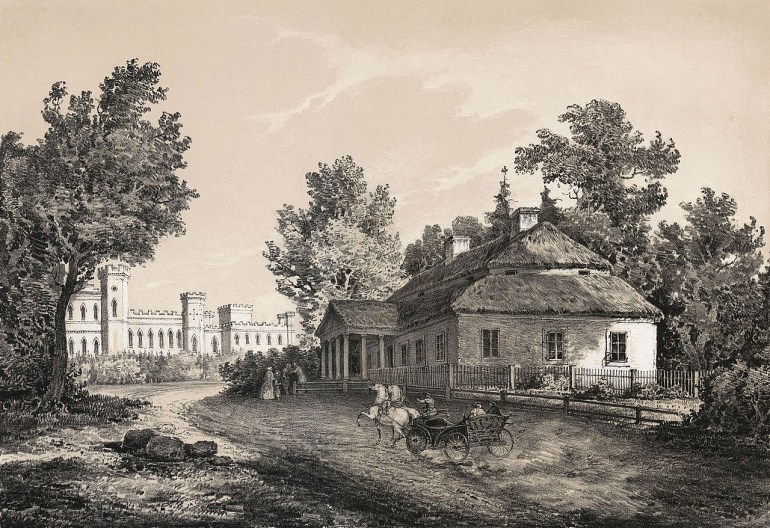What Is the Correct Pronunciation of Kościuszko? And Is There One?
Tadeusz Kościuszko is arguably the most famous Polish figure in world history, and a variety of places around the world were named after him, from the Americas to Australia. But can you pronounce his name correctly? Does anyone pronounce it correctly?
The pronunciation and spelling of Tadeusz Kościuszko's name have posed problems since the late 18th century. President Washington reportedly wrote the name of the Polish hero of the American Revolution in eleven different ways. Unfortunately, we don't know how he pronounced it.
Meanwhile, the chief of a local Miami tribe, who visited Kościuszko in Philadelphia, also found it confusing. As he later told his tribe, he had made friends with a righteous white man by the name of... Kotcho.
In the United States, Kościuszko lent his name of several geographic locations, among them Kosciuszko Bridge in New York, Kosciusko Island in Alaska, and several towns and villages scattered across the country. As a result, the traditional English pronunciation approximates anything from Kos-ee-oss-ko to Ko-shoo-sko.
And, if you saw the 2006 film Borat and remember the scene where the protagonist visits a local television station, interrupting the weather forecast and wreaking havoc along the way, you might also know that the US pronunciation can even sound like ‘Cause-cow-sko’.
 Borat vs. weather man scene, photo: screengrab
Borat vs. weather man scene, photo: screengrabIn Australia, where Kościuszko is the name of the country's highest mountain (along with a whole array of other geographical venues), it is written closer to its original Polish spelling, and is pronounced Kaw-zee-osko.
And if you think Kosciuszko's name is a mouthful, imagine singing it! It’s been done: give a listen to this pop song by Australian band Midnight Oil.
By now you're probably ready to learn the Polish pronunciation of Kościuszko, which is Kosh'-tchoosh-ko – a rather far echo of the contemporary American and Australian variants, right?
The Kościuszko conundrum
 The Kościuszko family manor in Merachoushchyna, small village (today in Belarus) where Tadeusz Kościuszko was born in 1746; drawing by Napoleon Orda; Source: Wikimedia/Commons
The Kościuszko family manor in Merachoushchyna, small village (today in Belarus) where Tadeusz Kościuszko was born in 1746; drawing by Napoleon Orda; Source: Wikimedia/CommonsSo now you've learned the correct pronunciation of Kościuszko... Or maybe not. Because, in a way, why should the Polish pronunciation be ultimately authoritative? The problem with pronouncing Kościuszko's name correctly goes beyond the admittedly difficult aspects of Polish alphabet and pronunciation, and touches on delicate cultural, social and ethnic issues specific to the region where Kościuszko was born. So what does Kościuszko's name actually tell us about these historical realities of Eastern Europe?
Kościuszko was born and grew up in what is today western Belarus, an area which at the time of his birth in the mid-18th century was part of the Polish-Lithuanian Commonwealth, but which earlier comprised the core of another powerful polity known as the Grand Duchy of Lithuania. Referred to traditionally as Litwa (Lithuania) in Polish, this multi-cultural region was inhabited by several ethnicities, among them Belarusians, Jews, Poles, Tatars and Lithuanians.
The Kościuszkos were one of the many local Belarusian (or Ruthenian, to use a more historically accurate term) families which earned merit holding office in the administration of the Grand Duchy. The family name itself goes back to a 15th-century ancestor by the name of Konstanty, nicknamed Kostiuszka or Kastsiushka (Касьцю́шка). This nickname would later become a family name in its own right.
Like many local families the Kościuszkos were Orthodox Christians, which may be another indication of a Belarusian, rather than Polish, background. It was only in a later process of Polonisation that the family converted to Catholicism (which took place in the second half of the 17th century) and started speaking Polish, which by then was the lingua franca of the Polish-Lithuanian Commonwealth. With all this in mind, the Belarusian pronunciation of Kościuszko certainly appears legitimate, and even historically accurate.
While we obviously don't know how Kościuszko pronounced his own name, one could infer he would have enjoyed the 'provincial', 'rustic' pronunciation of his name in the tongue of the local community, which was the language of his ancestors and which he had likely heard growing up along with peasant kids in the Belarusian countryside.
This would also be in keeping with the egalitarian and democratic ideals which became the driving force behind his impeccable character and the constant struggle for freedom which earned him a place in history books. Accordingly, many Belarusians consider Kościuszko a national hero and a key figure of their own national history.
And how do speakers of Belarusian actually pronounce his name? Well, quite differently: It’s Kas-tsyush-ka. And they have songs about him too, like the one by the Belarusian punk band Dzietsiuki.
Hence, the complicated cultural background of the Polish-Lithuanian Commonwealth makes the task of pronouncing Kościuszko's name correctly quite aporetic if not altogether impossible. On the other hand, Kościuszko's role in world history and his subsequent ascension to fame legitimises the many pronunciations appearing around the world. So from Kotcscho and Kosciusko, to Kastcyushka and Kościuszko, there are plenty of pretty legitimate options – just pick your favourite.
[{"nid":"5688","uuid":"6aa9e079-0240-4dcb-9929-0d1cf55e03a5","type":"article","langcode":"en","field_event_date":"","title":"Challenges for Polish Prose in the Nineties","field_introduction":"Content: Depict the world, oneself and the form | The Mimetic Challenge: seeking the truth, destroying and creating myths | Seeking the Truth about the World | Destruction of the Heroic Emigrant Myth | Destruction of the Polish Patriot Myth | Destruction of the Flawless Democracy Myth | Creation of Myths | Biographical challenge | Challenges of genre | Summary\r\n","field_summary":"Content: Depict the world, oneself and the form | The Mimetic Challenge: seeking the truth, destroying and creating myths | Seeking the Truth about the World | Destruction of the Heroic Emigrant Myth | Destruction of the Polish Patriot Myth | Destruction of the Flawless Democracy Myth | Creation of Myths | Biographical challenge | Challenges of genre | Summary","topics_data":"a:2:{i:0;a:3:{s:3:\u0022tid\u0022;s:5:\u002259609\u0022;s:4:\u0022name\u0022;s:26:\u0022#language \u0026amp; literature\u0022;s:4:\u0022path\u0022;a:2:{s:5:\u0022alias\u0022;s:27:\u0022\/topics\/language-literature\u0022;s:8:\u0022langcode\u0022;s:2:\u0022en\u0022;}}i:1;a:3:{s:3:\u0022tid\u0022;s:5:\u002259644\u0022;s:4:\u0022name\u0022;s:8:\u0022#culture\u0022;s:4:\u0022path\u0022;a:2:{s:5:\u0022alias\u0022;s:14:\u0022\/topic\/culture\u0022;s:8:\u0022langcode\u0022;s:2:\u0022en\u0022;}}}","field_cover_display":"default","image_title":"","image_alt":"","image_360_auto":"\/sites\/default\/files\/styles\/360_auto\/public\/2018-04\/jozef_mroszczak_forum.jpg?itok=ZsoNNVXJ","image_260_auto":"\/sites\/default\/files\/styles\/260_auto_cover\/public\/2018-04\/jozef_mroszczak_forum.jpg?itok=pLlgriOu","image_560_auto":"\/sites\/default\/files\/styles\/560_auto\/public\/2018-04\/jozef_mroszczak_forum.jpg?itok=0n3ZgoL3","image_860_auto":"\/sites\/default\/files\/styles\/860_auto\/public\/2018-04\/jozef_mroszczak_forum.jpg?itok=ELffe8-z","image_1160_auto":"\/sites\/default\/files\/styles\/1160_auto\/public\/2018-04\/jozef_mroszczak_forum.jpg?itok=XazO3DM5","field_video_media":"","field_media_video_file":"","field_media_video_embed":"","field_gallery_pictures":"","field_duration":"","cover_height":"991","cover_width":"1000","cover_ratio_percent":"99.1","path":"en\/node\/5688","path_node":"\/en\/node\/5688"}]